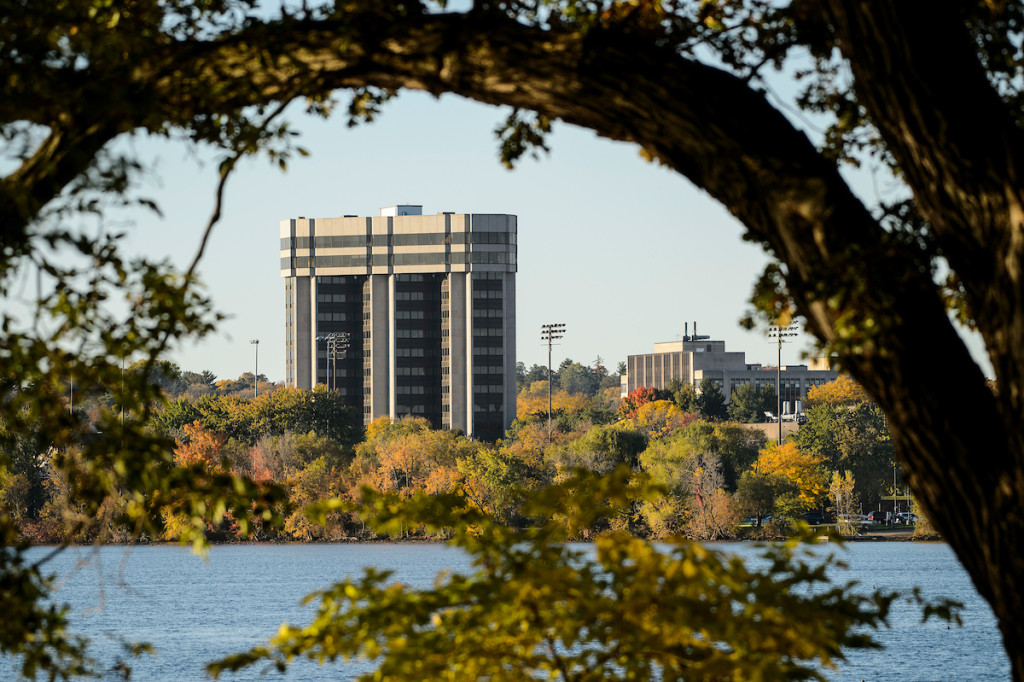RISE-AI gets $15 million boost from the Wisconsin Alumni Research Foundation

The Wisconsin Alumni Research Foundation Building (WARF) and Lake Mendota shoreline are seen from Picnic Point. Photo: Jeff Miller
The Wisconsin Alumni Research Foundation (WARF) will commit $15 million over the next three years to extend the University of Wisconsin–Madison’s strength in artificial intelligence research and education by supporting the university’s Research, Innovation and Scholarly Excellence Initiative (RISE) focus on AI.
RISE is a multifaceted effort focused on faculty hiring, research infrastructure, interdisciplinary collaboration and student opportunity. It will speed hiring of 120 to 150 new faculty over three-to-five years in several focus areas chosen for their relevance to Wisconsin and promise for solving society’s biggest challenges, their complexity and impact across scholarly disciplines, and their importance to the lives of current and future UW–Madison students.
RISE-AI is the first area of focus of the initiative, announced in February, and it builds upon and amplifies the university’s already strong faculty expertise across numerous disciplines. The effort will get a boost from WARF support that will help fund cutting-edge technology, bolster research staff, and provide start-up costs to meet the needs of talented researchers.
“AI is already shaping our present. With WARF as a partner, we’re hitting the ground running with RISE-AI to ensure UW–Madison can lead the way in shaping AI’s role in our future,” says UW–Madison Chancellor Jennifer L. Mnookin. “WARF’s support will help us attract exceptional talent, build cutting-edge research infrastructure and produce AI innovations that benefit Wisconsin and the world.”
The support from WARF will help the university’s scientists and students pull the future nearer while also pushing the benefits of their work and education further across the state and world.
“WARF is proud to support the chancellor’s leadership and strategic vision and has approved a grant to assist in the campus’s new AI RISE Initiative. Supporting research and faculty hires in the fast-changing field of artificial intelligence is an important contribution to our society and, as such, a 21st century investment in The Wisconsin Idea,” says Erik Iverson, WARF CEO. “This funding will allow UW–Madison to attract the very best research talent from all career stages and disciplines and ensure the campus has the infrastructure to support their groundbreaking work.”
WARF’s contribution will give the university additional leverage to make investments in very competitive markets for computer technology and skills, while also supporting the breadth of fields contributing to the study and advancement of AI, from medicine, philosophy, agriculture, sociology and more. For instance, this fall, the School of Human Ecology announced its first two hires through RISE-AI.
“By intentionally expanding on our already incredible expertise, we now have an opportunity to think in new and strategic ways, to build and expand our infrastructure to support research and, most importantly, to support the people who do that amazing work,” says Charles Isbell, UW–Madison provost and a computer scientist who conducts AI research.
Strategic expansion ensures RISE reaches into every corner of UW–Madison’s campus, making sure AI benefits not only researchers but also students. The support from WARF represents an investment in people.
“We are grateful to WARF for supporting this critical initiative to unlock new applications for AI, which will be impactful and felt across disciplines,” says Dorota Brzezinska, UW–Madison’s vice chancellor for research. “AI is here today, and with this support, we are able to quickly respond to some of our society’s most pressing problems and leverage AI as a tool to generate substantial economic and social benefits.”
WARF also supports UW–Madison’s mission with annual funding for researchers, research projects and facilities and through its affiliated Morgridge Institute for Research. In 2025, WARF’s support for UW–Madison research will total $159.8 million.
Tags: artificial intelligence, RISE, WARF

